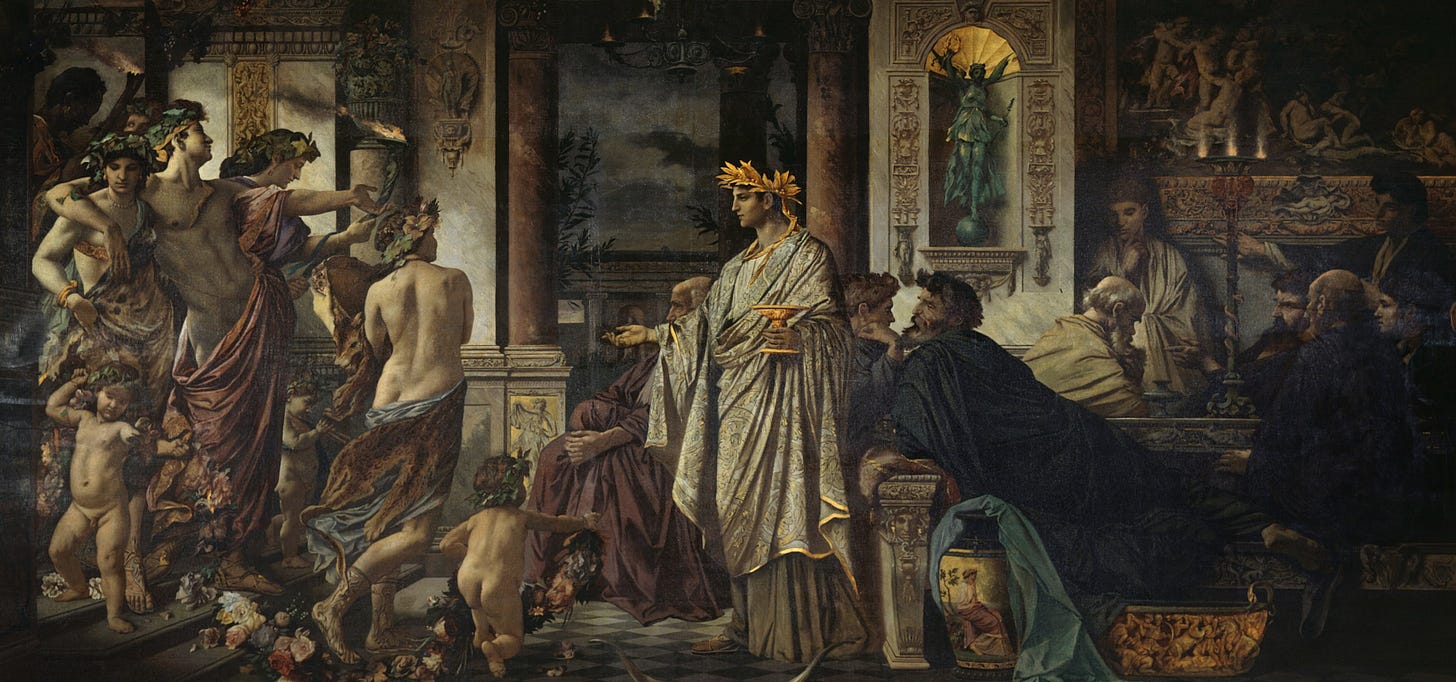Dear supporters of Daily Philosophy,
Today we go back to our reading of Plato’s Symposion, one of the greatest texts on the philosophy of love ever written — and, surprisingly perhaps, a very amusing one.
If you have not read the first part of this series on the philosophy of love, here are the previous instalments:
Let’s Talk About Love #263
Dear friends of Daily Philosophy, Here we are, a little later than usual once more, which has to do with the additional work that I’m doing now on the YouTube channel. Making a 15-minute video takes m…
Plato’s Symposion #264
Dear friends of Daily Philosophy, I’m happy to welcome you all and our new friends here today! As I said last time, I intend to give you a little overview of the philosophy of love in the coming weeks…
You will want to read at least the second one, to have an idea about what’s happening at Plato’s Symposion.
But before we begin, let me briefly explain something else: last time I got a few emails asking me why I call it the “symposion” instead of the “symposium,” which is the common way of saying it in English. So which is right?
Symposium or Symposion? Plato was writing in Greek, where the word is ‘symposion’ (ending with ‘-on’). Later on, philosophy in the West of Europe was mostly done in Latin (which was also the language of the church and of science), while few people spoke Greek. So much of ancient Greek philosophy came to us through commentaries in Latin, where a common ending of nouns was ‘-um’. Other examples of Greek ‘-on’ changing to ‘-um’ would be ‘stadion’ becoming ‘stadium’ and ‘monasterion’ becoming ‘monasterium.’ So today we’re used to the Latin forms, but technically these are wrong. The prefix ‘syn-’ or ‘sym-’ is Greek, not Latin. And since Plato also was a Greek, I opted to call the Symposion by its Greek name in this article, although in English, ‘symposium’ is more commonly used.
And now, let’s jump in and read the actual text of Plato’s Symposion! If you’d like to read along, the full text is here:
http://classics.mit.edu/Plato/symposium.html
Socrates goes to the party
This is the story of a drinking party. A few friends meet at the house of Agathon, where they will spend the evening talking about the nature of love, eating, drinking and generally having a good time. They are all well-known citizens of Athens: a poet, a famous comedian, a politician and playboy, a physician, a lover of literature, and Socrates, the great philosopher and wisest man of the age. It’s not important to remember all the names, but it does matter what the occupations of these people are. We will see later, why.
Keep reading with a 7-day free trial
Subscribe to Daily Philosophy to keep reading this post and get 7 days of free access to the full post archives.






